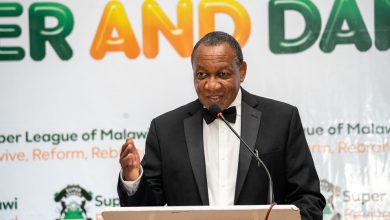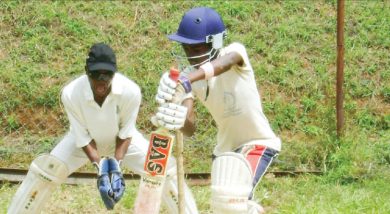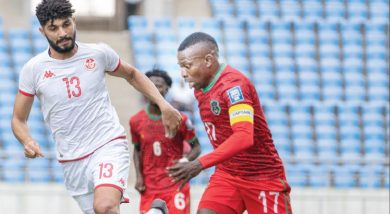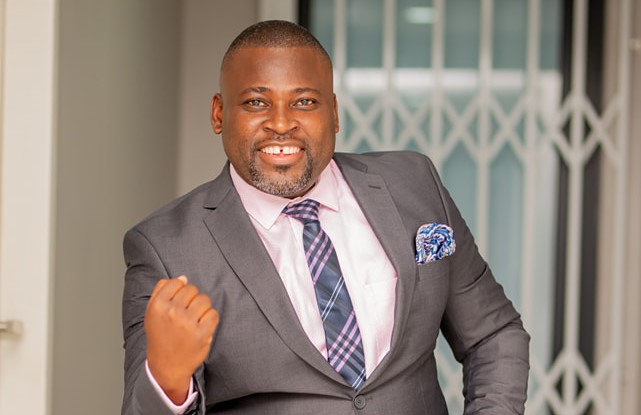Local coaches tactically weak, says Mabedi

Former Flames interim assistant coach Patrick Mabedi has said the biggest challenge with local coaches was on tactics, but insisted they are still better than expatriates.
The Nation had asked Mabedi and his former interim boss Eddingtone Ng’onamo on whether they were happy with their performance and if they fancied a second chance with the Flames.
“We were assigned four games against Kenya, Namibia and Nigeria. I think we did well considering the short period of time. Our only loss [in four World Cup qualifiers] was in Nigeria, so we are proud of ourselves,” Mabedi said from South Africa.
But he fell short of mentioning Cosafa Castle Cup losses to Zimbabwe and Angola.
With Ng’onamo, Mabedi and before Ernest Mtawali was removed from the panel for Belgian Tom Saintfiet, the Flames also lost by 1-0 margins to Mozambique and Botswana in friendly matches. Malawi then beat Rwanda 1-0 in another warm-up encounter. This translated to a record of five defeats, two draws and a win.
When hiring Saintfiet on July 9 2013, FAM general secretary Suzgo Nyirenda said: “A FAM technical analysis on the performance of the coaches for the home games proved that the team lacked tactical approach to game. Eddie [Ng’onamo] also accepted that his team lacked tactical efficiency.”
Ironically, during the only 1-0 win in Namibia in the World Cup qualifiers, Ng’onamo missed the game as he returned home after the death of his son. Mabedi and Mtawali handled the match in Windhoek where Gabadinho Mhango was on target.
“On expatriate coaches, I am speaking from experience. We have had so many of them and they failed. Of course, local coaches are better, but they can learn from the foreign coaches. We just need to improve tactical awareness,” Mabedi, who works as Moroka Swallows youth team coach, observed.
Mabedi and Ng’onamo were on the panel when Saintfiet presided over a 2-0 loss in Nigeria in what was the Flames first loss during the World Cup campaign. Before his removal, Kinnah started the qualifiers in 2012 with a 3-2 loss in Chad, a 2-0 win in the reverse game followed by 0-0 and 1-1 draws with Kenya and Nigeria respectively.






Mabedi is contradicting himself by observing that local coaches are better than expatriate ones and yet he understands the fact fact local coaches can learn from expatriates.How can you from the ones that keep on failing in Malawi? It is like in class, a wiser student trying to ask the unwise one how to solve a math problem.
To be honest, when one looks at the previous expatriate coaches hired by FAM from the years after 2001, no one has been of the highest technical ability and all lacked top level football experience.The reason is because FAM goes for the cheapest possible expatriate coaches who just studied coaching without being exposed to top level professional football as players and coaches.In Stephen Constantine,Steve Mcraye, and Tom Saintfiet,you have three coaches who just studied coaching at an early age after having not played football for any top European clubs.They studied coaching like any other program with an intention of convincing third world countries’ football associations to win coaching contracts.These coaches have less track record of coaching in the their European countries than African and Asian countries.I am sorry to say they are coaching flops.
Mabedi’s observation that Malawian coaches are better than expatriate ones is an overstatement.The few only successful local coaches on average level are late Matthews Mwenda, late Reuben Malola, Kinnah Phiri, and Henry Moyo while the rest are mediocre.Probably when one uses the word “successful” it’s gonna be argued that Mwenda and Malola were the most successful ones because under Matthews Mwenda,Malawi achieved its highest ranking on FIFA in the country’s playing history-it was in the sixties.Reuben Malola’s team managed to mint bronze at the All Africa Games in Kenya in 1987. Henry Moyo was credited for being the first Malawian to qualify the team to the Africa cup of nations in Ivory Coast in 1984 even though his team flopped in the preliminary rounds. Kinnah Phiri had a mixed record,luckily qualifying the team to Angola Afcon and also achieving some victories against high profile opposition like Egypt and Guinea,but continually flopped at CESAFA and COSAFA. Kinnah also posted inconsistent results. Expatriates such as Ted Powell,Dan Maclennan,Kim Spidsboel,and Manfred Hoener were all successful despite Malawi’s limited resources.
Local coaches can not make good national team coaches because they originate from a league that is not competitive and they are the ones who coach the players in the league.If the league was professional and local coaches exposed their capabilities and potential at Africa level,then they would be priority coaches for the national team because tactically and technically it means they were complete.An experienced expatriate coach with a good track record overseas can make a good coach for the Flames.Malawi doesn’t need half-baked European coaches either.Some European coaches have been to almost all countries in Africa but no success.
Malawi ca easily have very good coaches if we only get rid of the PHD degree among ourselves. In the first place if I may say is one of the countries that would produce very good footballers if we had the same system our other countries are using. Our players are playing just out of interest, or they play just as a hobby. While in other countries they play as a job and they know they have to work hard in order to be marketable. And they wake up in the morning and tell the family am going to work, and they mean football. Why cant we create such a stand for our players?Give them confidence that they are employed.
Back to our Local coaches, how many could we have by now if we had to invest in them? As a nation we ought to spend by sending our own young men for good colleges where we think would get good qualifications and for some time expose them to other countries for experience at our total cost. But in most cases this doesn’t happen. Now some one tries own his own to push him or herself and qualify for such a trade. How do we treat him when he comes back home? What do we promise to pay him even when we know that the course was so expensive. We pay him a Malawian salary and not what his qualification deserves. Then we hire an expatriate of even with less qualification than our local man he/she gets 3 times more than our local man gets. How do we think this local man or woman will work when he comes to know that the same work somebody is getting a fortune than him/her?. Surely he /she will work according to what he gets and not what he knows he can do. Take simple example of Kina Phiri he has been doing wonders in other countries, what would fail him here. Its because we don’t consider him as a professional but a Malawian who deserves Malawi peanuts, when the same office expatiates are enjoying lots of benefits. No Malawians lets promote ourselves lets first invest in order to have good results. Lets try to move from hobby players to professional players.